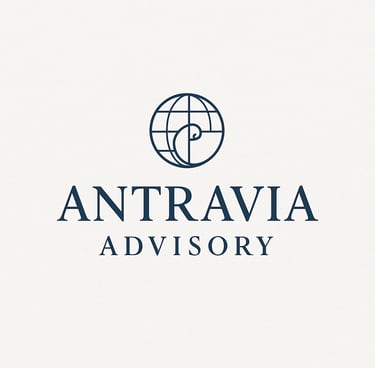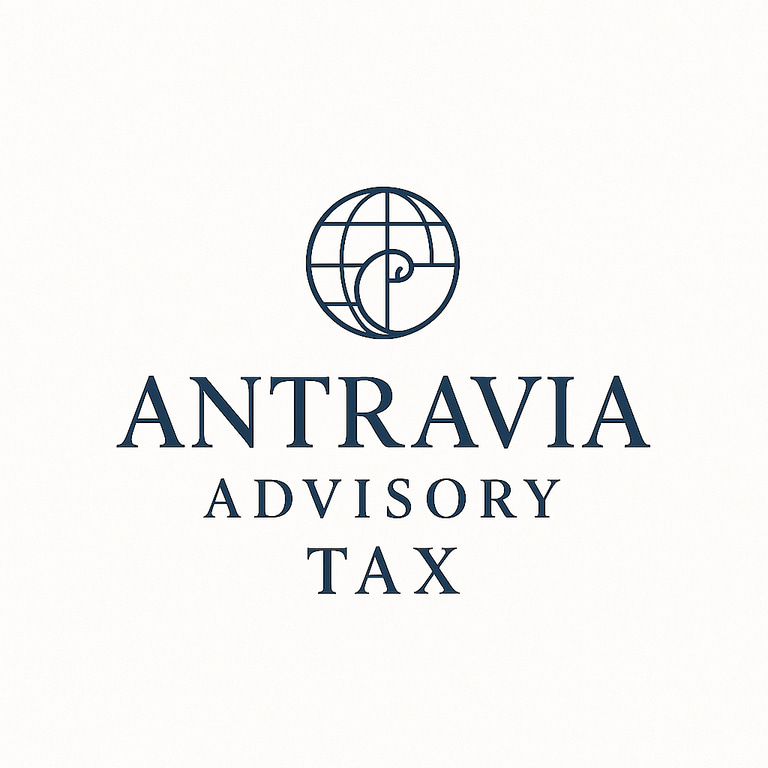U.S. Taxes for Travel Bloggers and Influencers
Learn how U.S. travel bloggers and influencers file taxes. Understand the IRS hobby vs business rule, eligible deductions, foreign income reporting, and how to stay compliant in 2025.
Tax.Travel by Antravia provides practical guidance for U.S. creators who earn from travel content, sponsorships, or affiliate links. Whether you’re a blogger, vlogger, or influencer based in the U.S. or abroad, the IRS considers your income taxable. This guide explains how to file correctly, claim allowable deductions, and structure your creative business professionally.
Understanding how the IRS sees your Work
The IRS treats all income from content creation as taxable, no matter how small or irregular. The critical question is whether your activity qualifies as a business or is considered a hobby under Section 183 of the Internal Revenue Code.
If the IRS recognises your work as a business, it means you operate with a clear intent to make a profit. You keep records, promote your services or content actively, and run your platform as a genuine enterprise. In this case, your income and legitimate expenses are reported on Schedule C (Form 1040), and you may owe self-employment tax.
If your activity is viewed as a hobby, it means you earn occasionally without a clear business structure or ongoing profit motive. You must still report all income to the IRS, but you cannot deduct related expenses.
To be treated as a business, the IRS expects creators to demonstrate real commercial intent. This includes maintaining separate bank accounts, issuing invoices, tracking marketing spend, and keeping consistent financial records that show you are running a professional operation.
Who this Guide is for
This page is for:
Travel bloggers and influencers earning from brand collaborations, affiliate marketing, or ad revenue.
Content creators abroad working as expats or digital nomads.
Freelancers and small businesses in travel, photography, or content production.
Even if you live overseas or your income fluctuates, you must still file a U.S. tax return and report your worldwide earnings.
Reporting Your Income as a U.S. Creator
All payments from U.S. companies, ad networks, or affiliate platforms must be declared. Typical forms include:
Form 1099-NEC for non-employee compensation (e.g., brand deals).
Form 1099-MISC for prizes, gifts, or royalties.
Form 1040 + Schedule C for sole proprietors and single-member LLCs.
Form 1040-ES for quarterly estimated tax payments.
If you live abroad, you’ll also need to consider:
FBAR (FinCEN Form 114) if your foreign account balances exceed $10,000 at any point in the year.
FATCA (Form 8938) if your combined foreign assets exceed the higher IRS thresholds for expats.
Deductible Expenses for Bloggers and Influencers
Legitimate deductions reduce your taxable income and demonstrate business intent. Common deductible costs include:
Website hosting, domain renewals, and plugins.
Photography, video, and editing equipment.
Travel directly related to content creation.
Marketing, advertising, and influencer collaborations.
Professional fees (accounting, legal, design).
Office, coworking, and internet expenses.
Education and professional training relevant to content production.
Keep digital receipts and maintain a clear record of each expense’s business purpose. The IRS increasingly reviews social-media-based businesses for deduction validity.
Working Abroad as a U.S. Creator
If you live or work outside the U.S., your income remains taxable. You may qualify for relief under the Foreign Earned Income Exclusion (Form 2555) or Foreign Tax Credit (Form 1116), depending on your situation.
For 2025, the FEIE exclusion limit is $130,000 per taxpayer.
Eligibility requires either:
Physical Presence Test: 330 days abroad in any 12-month period.
Bona Fide Residence Test: established long-term residence in another country.
Creators must also comply with local tax and visa rules - Antravia can help assess both sides to avoid double taxation.
See U.S. Expat Tax for more info
Business Structure Options for U.S. Creators
Forming a legal entity can provide better tax management and credibility.
Sole Proprietor: easiest setup, reported on Schedule C.
Single-Member LLC: separates personal and business assets; taxed similarly but offers liability protection.
S Corporation: potential savings on self-employment tax once income is steady.
Choose based on income level, risk, and residency status. U.S. creators living abroad should also consider how foreign residency affects LLC reporting and bank access.
Bookkeeping and Record-Keeping Requirements
Maintain accurate records of:
Income from each platform (PayPal, Stripe, AdSense, affiliates).
Receipts for travel, gear, and marketing.
Bank and credit-card statements.
Proof of business use for mixed-purpose expenses.
Cloud-based accounting tools like QuickBooks Online or Xero Global simplify currency conversion and IRS-compliant reporting.
Common Mistakes Creators Make
Assuming small or irregular income isn’t taxable.
Claiming 100 % of all travel as a deduction.
Ignoring foreign-account reporting (FBAR/FATCA).
Mixing personal and business finances.
Missing quarterly estimated-tax deadlines.
Penalties and IRS Enforcement
The IRS now uses digital payment-platform data (Form 1099-K) from PayPal, Stripe, and Venmo. Under the new 2025 threshold of $5,000, most creators will receive a 1099-K.
Failure to report these amounts can trigger audits or penalties, even for small businesses.
How Antravia Helps U.S. Creators
Antravia supports creators who earn internationally - from setup and bookkeeping to full tax filing. We help you:
Determine if you qualify as a business.
Structure your income for lower effective tax.
Claim all eligible deductions safely.
Manage cross-border compliance for expat creators.
Our advisory combines tax and accounting expertise with real experience in global payments and FX management.
Explore Our Latest Articles for Travel Bloggers & Influencers
Is your Travel Blog a Hobby or a Business? | IRS Rules for Creators
Hobby or Business? IRS Rules for Travel Bloggers & Influencers | 2025 Guide - Learn how the IRS decides whether your blog or influencer income is a hobby or a business. Understand Section 183 rules, deduction limits, and what proof creators must show in 2025. Link
Marketplace Facilitator Laws and OTAs: What Travel Businesses should know in 2025
Expedia, Airbnb, and Viator collect sales tax under marketplace facilitator laws, but not for every booking. Learn what travel agents and hotels still need to file in 2025 and how to avoid double taxation. Link
U.S Sales Tax Rules for International Travel Agents
Selling to U.S. travelers from abroad? Learn when and how U.S. sales tax applies to international travel sellers, and how to stay compliant without overpaying.
Turn Your Travel Content Into a Real Business
Antravia helps U.S. travel bloggers and influencers manage accounting, tax filing, and cross-border compliance.





Antravia Advisory
Where Travel Meets Smart Finance
Not legal advice, always verify with your Accountant
Email:
Contact us:
Antravia LLC
© 2025. All rights reserved. | Disclaimer | Privacy Policy | Terms of Use |
© 2025 Tax.travel — part of the Antravia Group.
Antravia.com | Antravia.co.uk | Antravia.ae |
Finance.travel | Tax.travel | Consultancy.travel | VAT.travel | VAT.claims |
USSales.tax | EuroVAT.tax | UKVAT.tax |
contact@antravia.com
Antravia LLC
4539 N 22nd St., Ste. N
Phoenix
Arizona
85016






